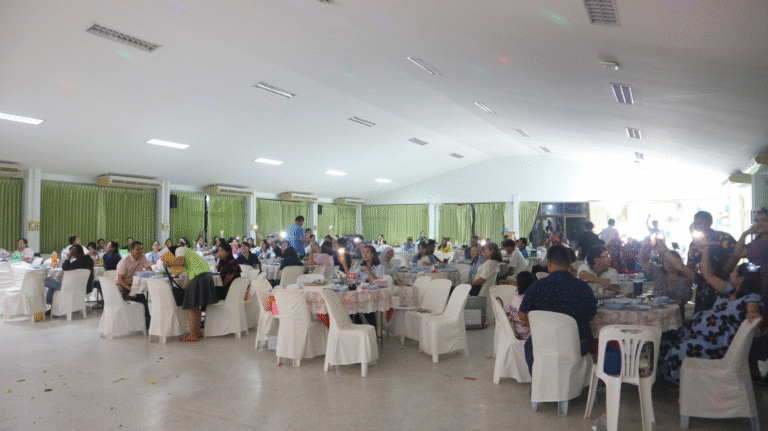Reporters: Mr. Sujinda Saehan, Mr. Ekkajak Intarat, Mr. Nitigon Jumniansuk, Mr. Thanet Sangseejun
Evidence Date: March 9th, 2024
Related SDGs: 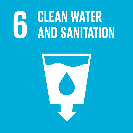
Related Indicators: 6.5.1, 6.5.3, 6.5.5, 6.5.6, 6.5.7
Details:
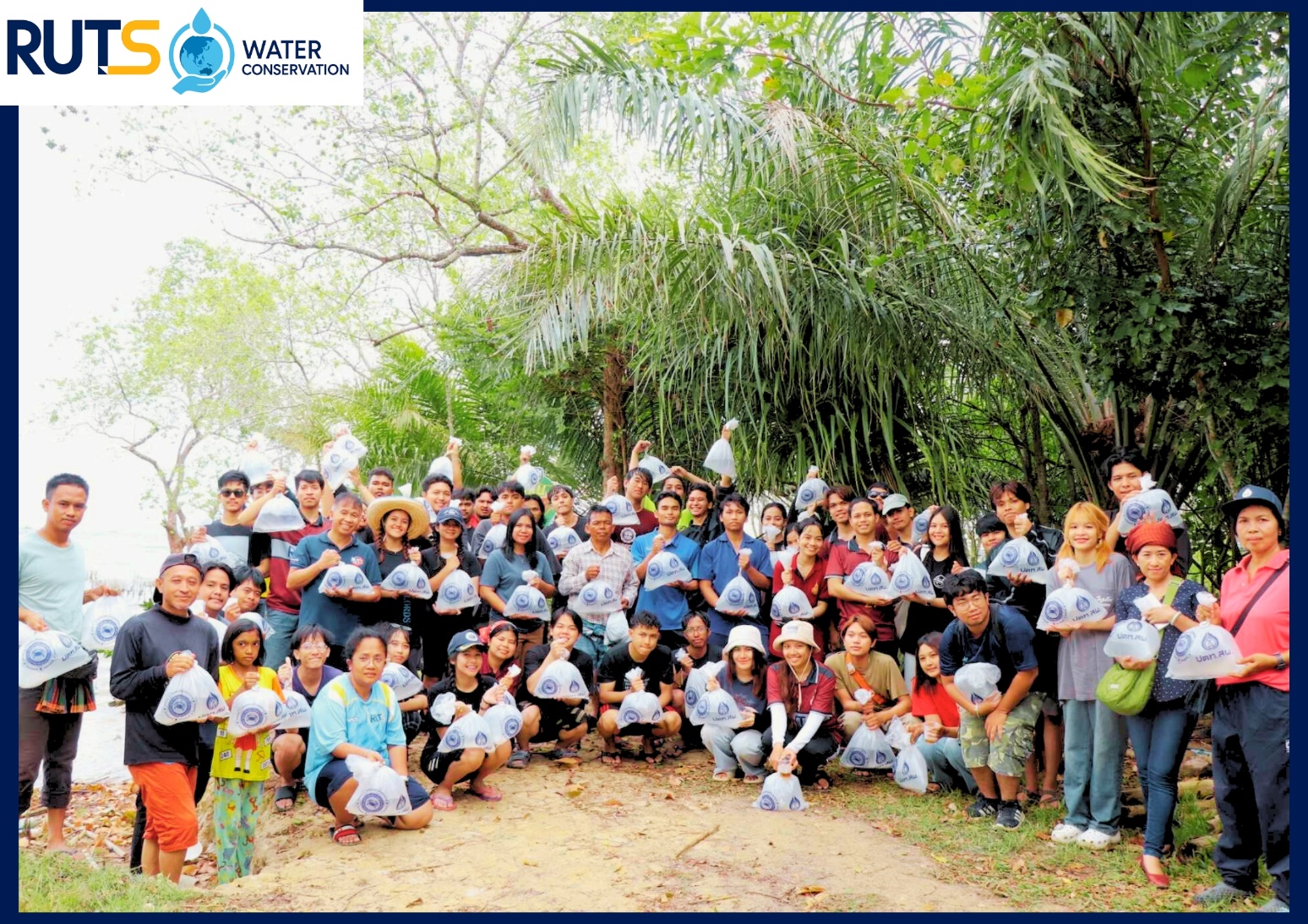 On March 9, 2024, the Faculty of Engineering at Rajamangala University of Technology Srivijaya (RUTS) organized the “Engineering Unity in Forest Planting and Aquatic Animal Release Project” at the Ban Khok Mueang Reforestation Area, Bang Riang Subdistrict, Khuan Niang District, Songkhla Province. The initiative aimed to promote environmental awareness and sustainable ecosystem restoration through collaborative community-based activities.
On March 9, 2024, the Faculty of Engineering at Rajamangala University of Technology Srivijaya (RUTS) organized the “Engineering Unity in Forest Planting and Aquatic Animal Release Project” at the Ban Khok Mueang Reforestation Area, Bang Riang Subdistrict, Khuan Niang District, Songkhla Province. The initiative aimed to promote environmental awareness and sustainable ecosystem restoration through collaborative community-based activities.
The event was presided over by Assistant Professor Bancherd Potakrat, Deputy Dean for Student Development, Faculty of Engineering. Mr. Thanin Kaewrat, Village Headman of Village No. 12, Ban Khok Mueang, and President of the Mangrove Conservation and Coastal Farm Club, was invited as a guest speaker and facilitator, sharing his expertise and local knowledge on mangrove ecosystem management and sustainable coastal practices.
The project featured a range of environmental conservation and learning activities, including:
- Constructing artificial fish habitats (“fish houses”) to enhance aquatic ecosystems and provide safe breeding grounds for marine life.
- Propagating and planting mangrove seedlings to restore and expand mangrove forests, which serve as vital natural barriers against coastal erosion.
- Releasing juvenile mud crabs to help sustain aquatic biodiversity and improve the ecological balance of local waterways.
- Learning about the production of bio-compost and organic fertilizers, encouraging sustainable agriculture and reducing chemical dependency.
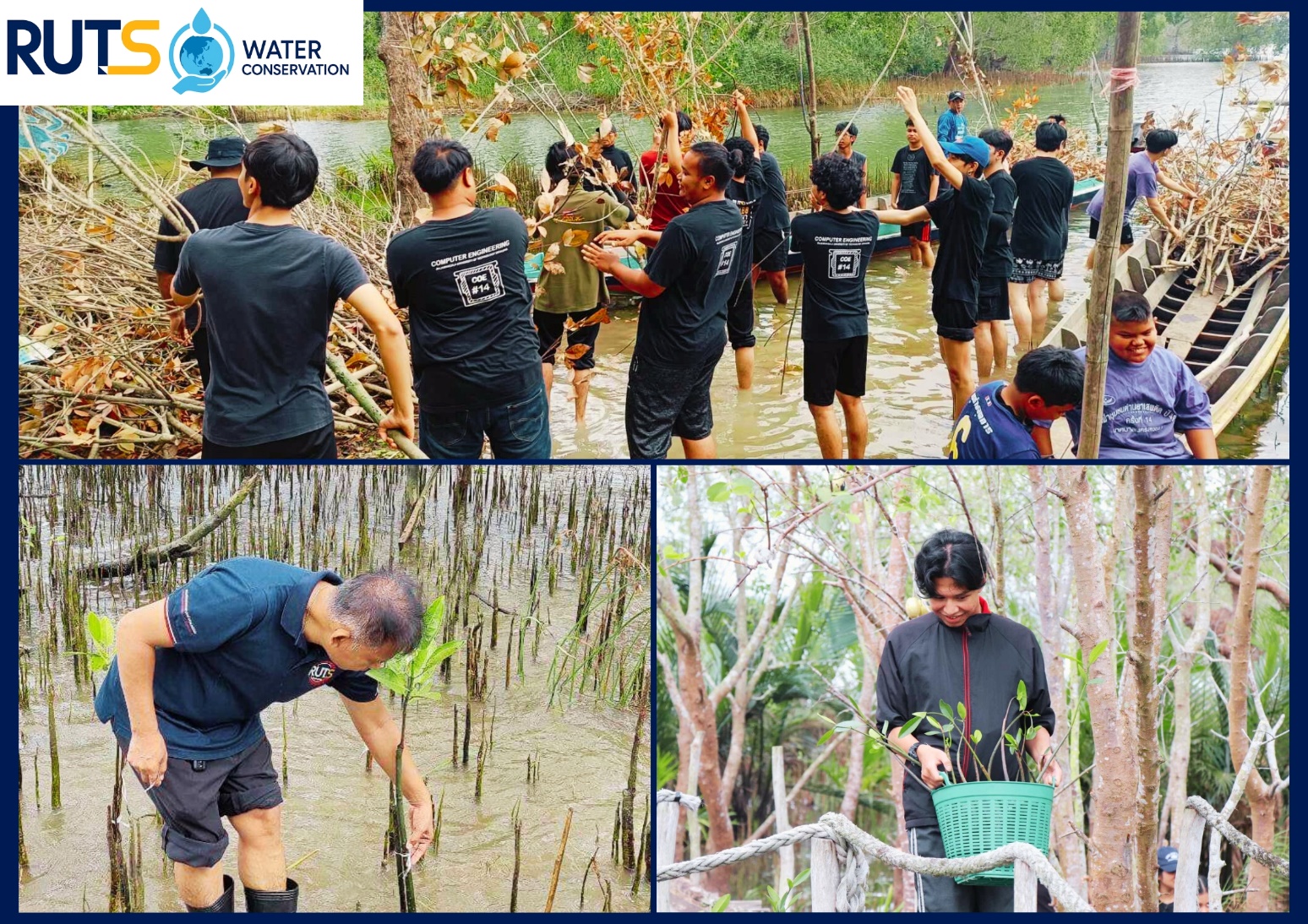
Through these integrated actions, the project contributes to both environmental and community resilience. By restoring mangrove forests and releasing aquatic species, participants actively help improve water quality, reduce coastal erosion, and strengthen natural filtration systems that remove pollutants and sediments before they reach coastal waters. The use of bio-fertilizers further supports sustainable farming practices and helps minimize chemical runoff, protecting both freshwater and marine ecosystems from contamination.
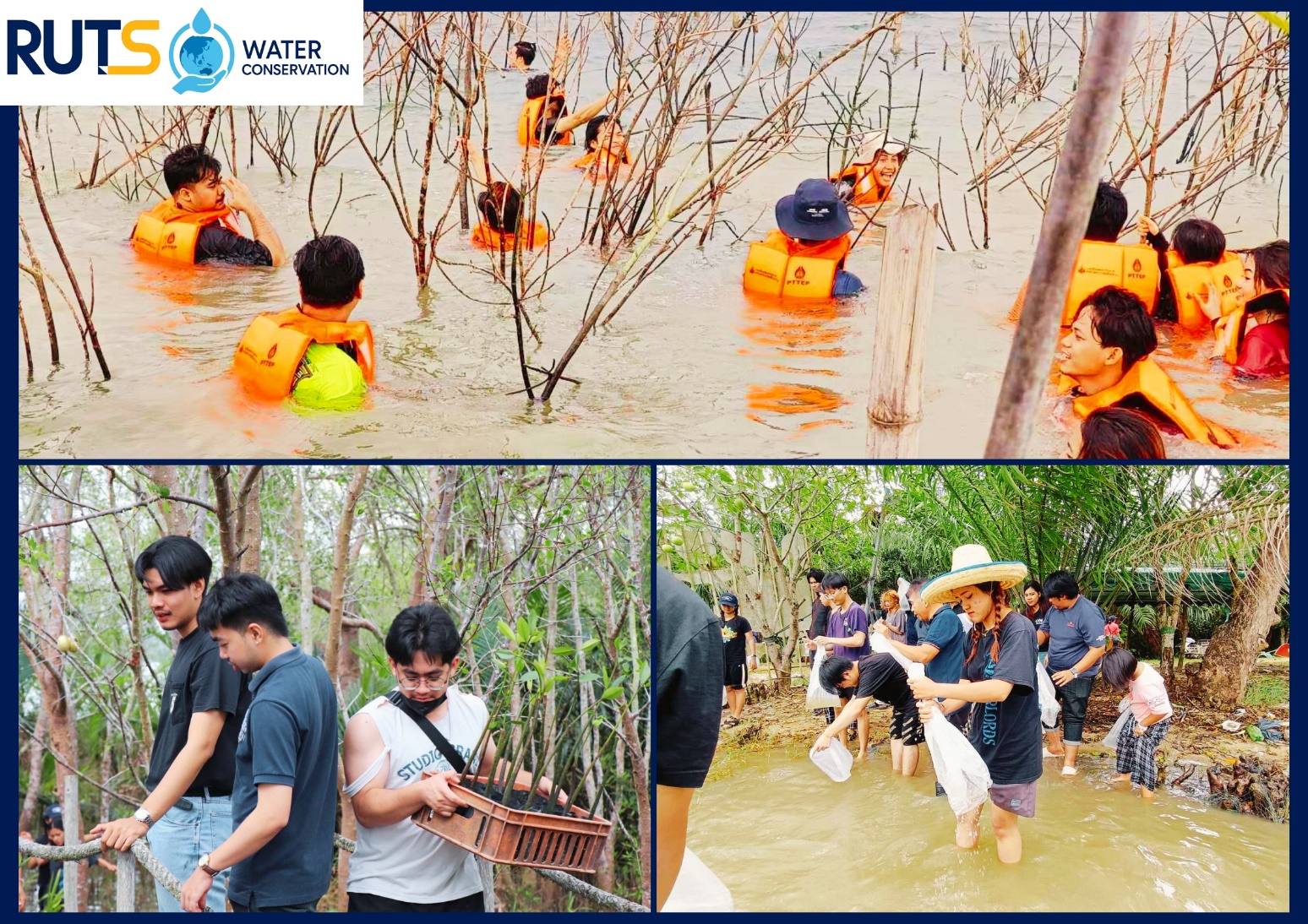
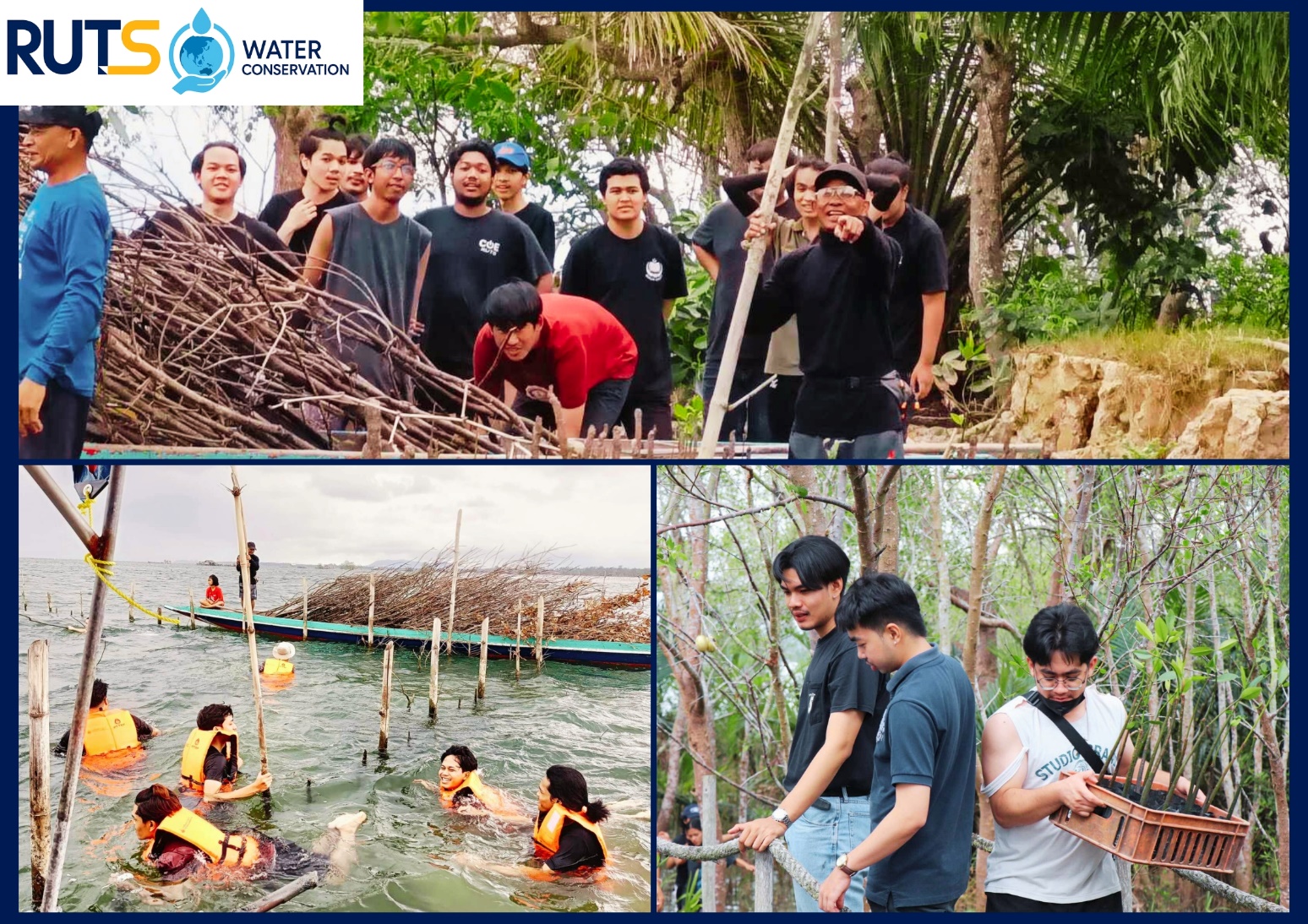
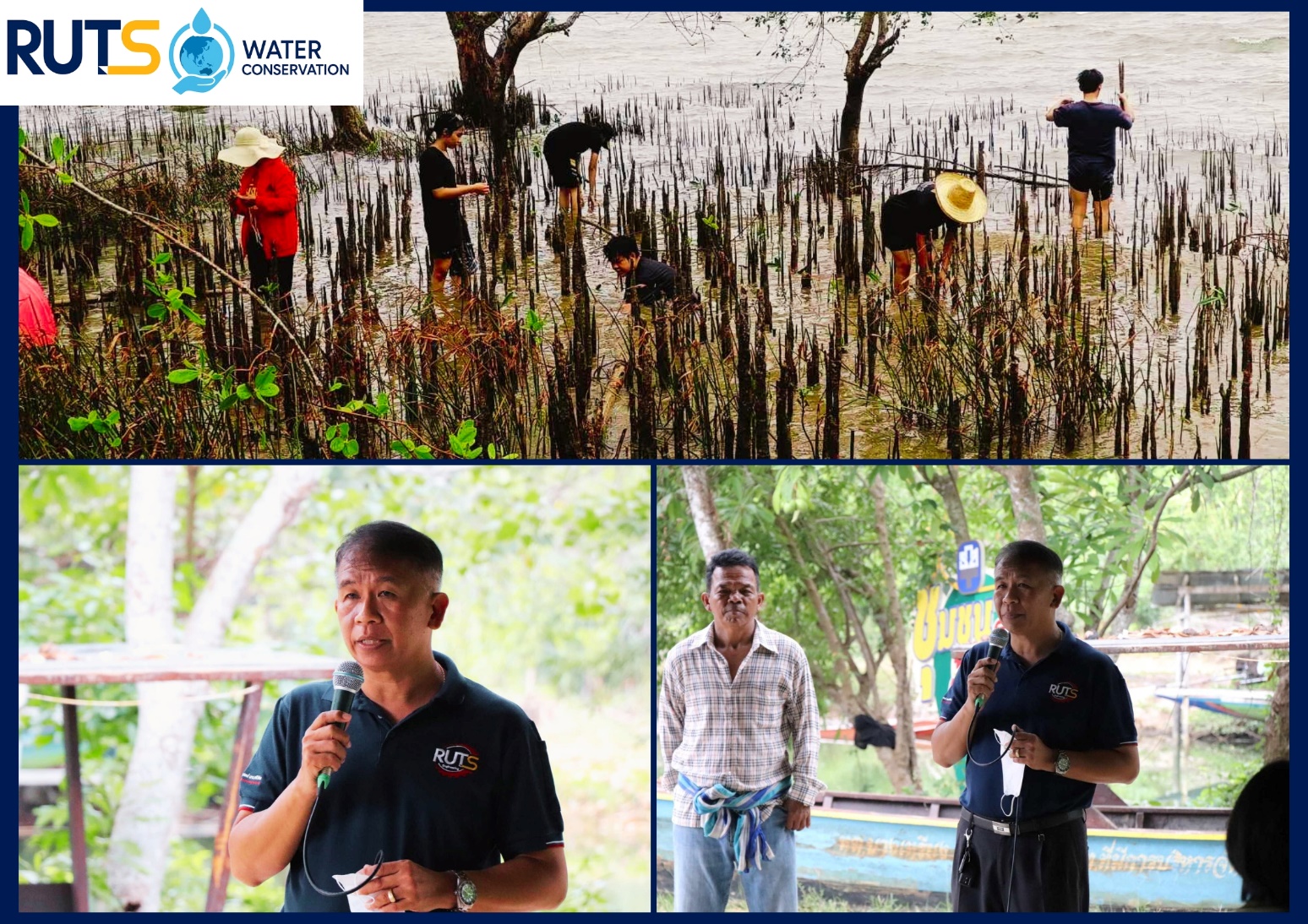
Beyond the environmental outcomes, the initiative also fosters a strong sense of social responsibility and experiential learning among students. It provides an opportunity for engineering students to apply scientific and technical knowledge toward real-world sustainability challenges, reinforcing the university’s mission to link education, innovation, and community development.
The “Engineering Unity” initiative exemplifies RUTS’s commitment to environmental stewardship and sustainable development. By integrating academic learning with community engagement and hands-on conservation, the project promotes sustainable natural resource management, biodiversity conservation, and ecosystem restoration.
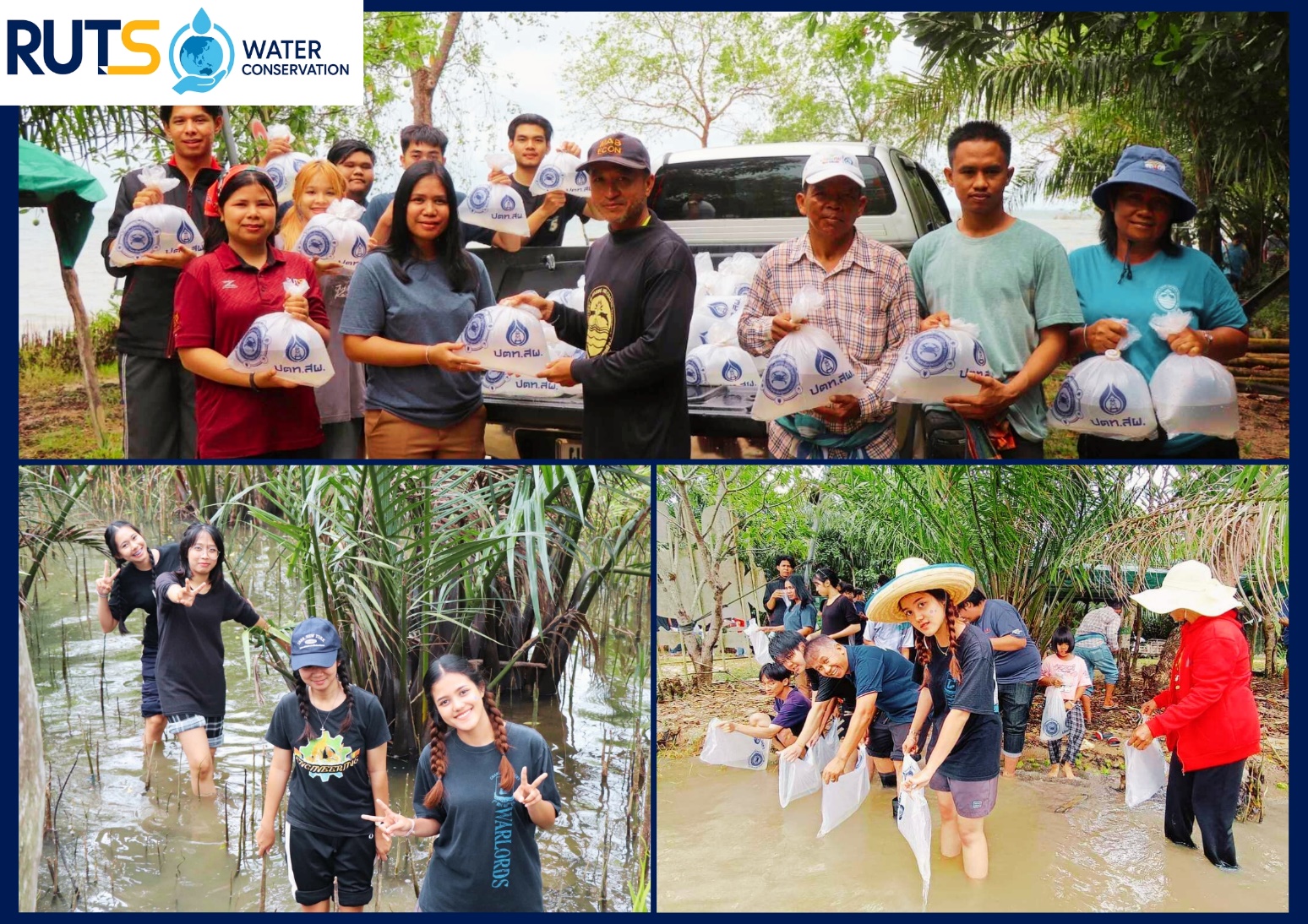
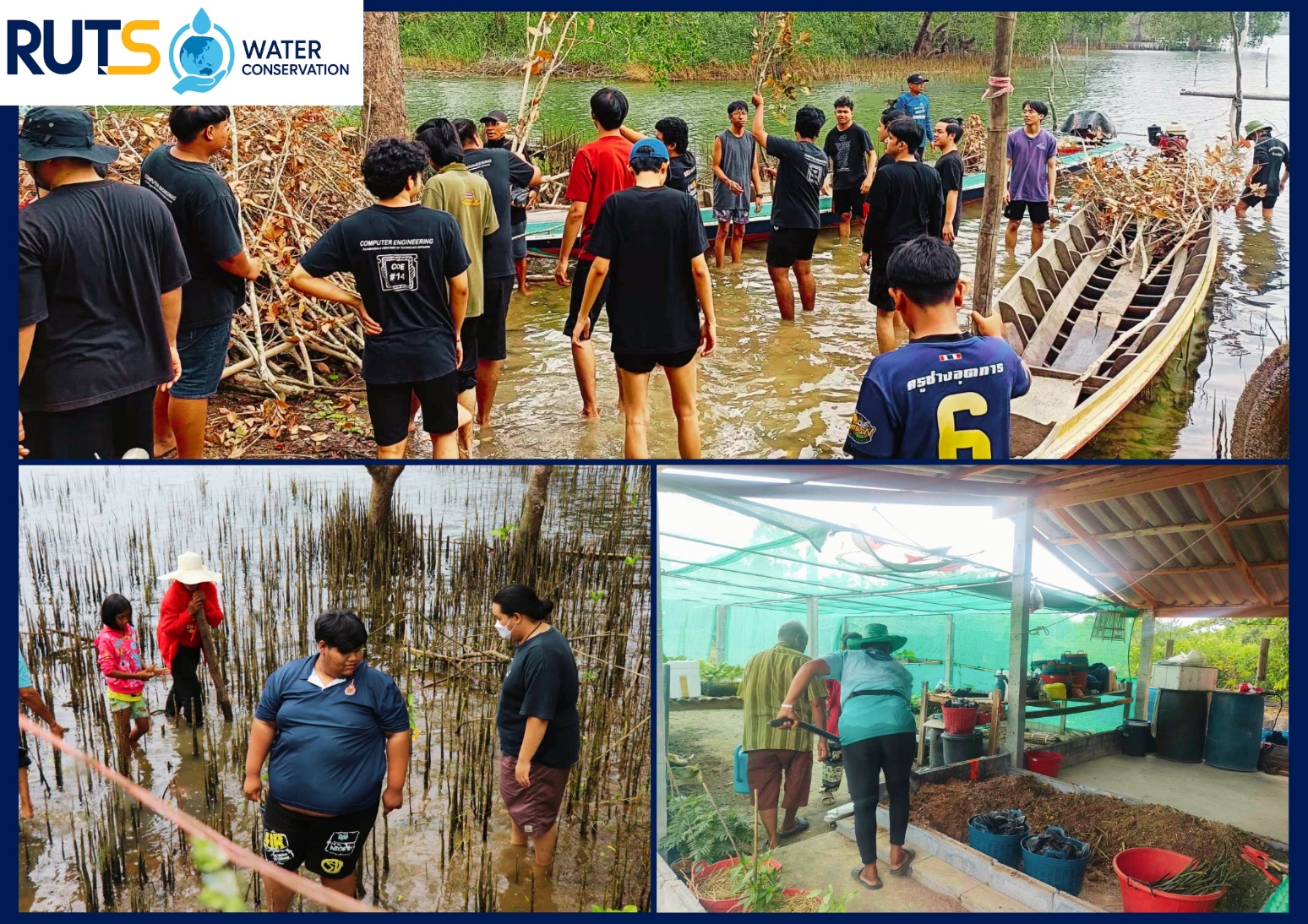
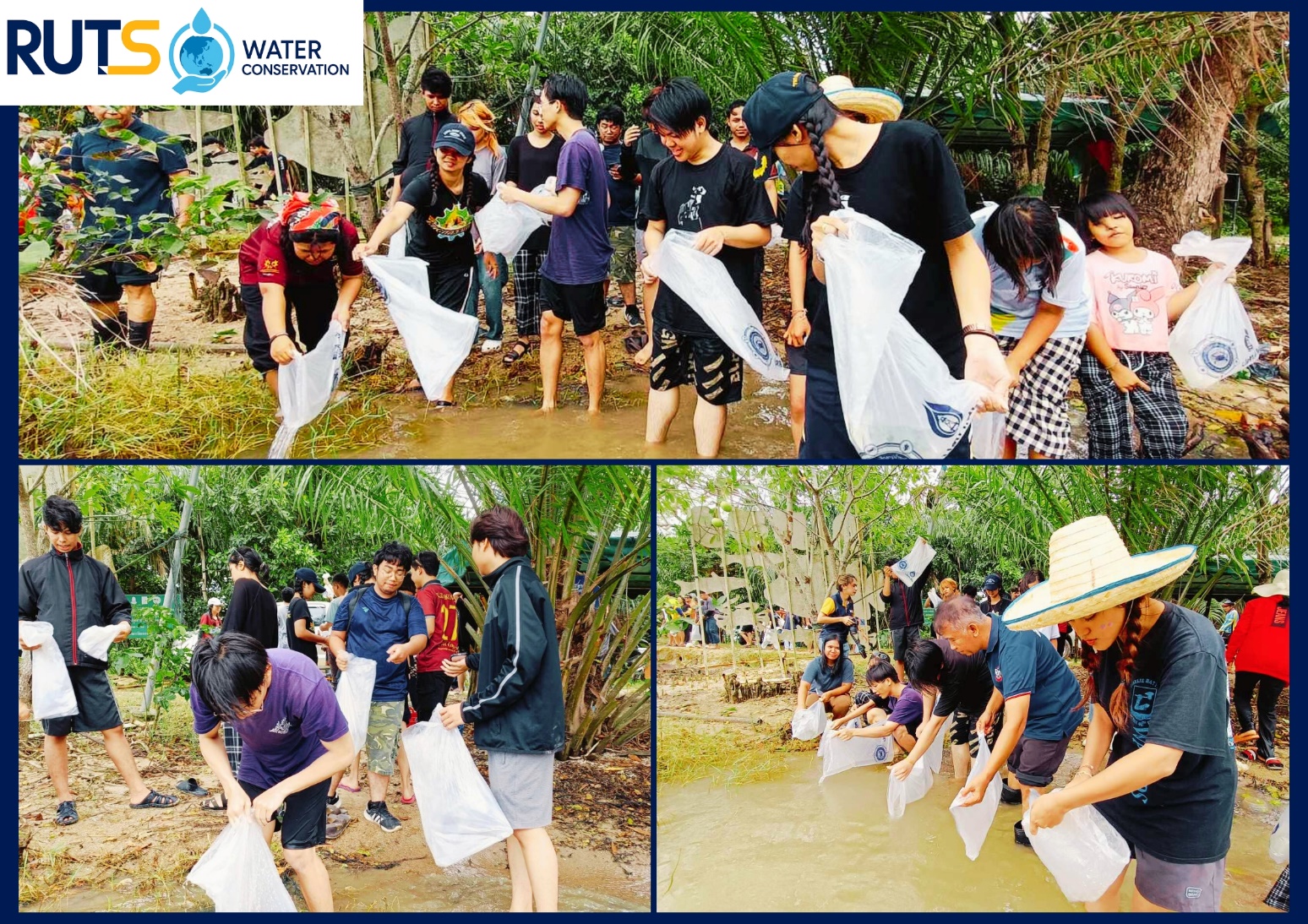
Related Links:



